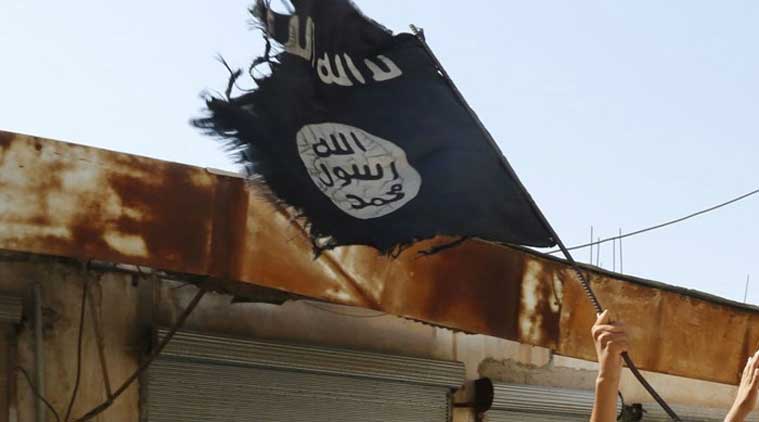Opinion Operation Sinai
Strategy against Islamic State must keep in mind the fluidity of the situation and the scale of collaboration needed.
 In this image made from a militant video posted on YouTube on Friday, April 3, 2015, which has been verified and is consistent with other AP reporting, a militant hammers away at a face on a wall in Hatra, a large fortified city recognized as a UNESCO World Heritage site, 110 kilometers (68 miles) southwest of Mosul, Iraq. Islamic State extremists at Iraq's ancient city of Hatra destroyed the archaeological site by smashing sledgehammers into its walls and shooting Kalashnikov assault rifles at priceless statues, a new militant video purportedly from the group shows. (AP Photo/Militant video)
In this image made from a militant video posted on YouTube on Friday, April 3, 2015, which has been verified and is consistent with other AP reporting, a militant hammers away at a face on a wall in Hatra, a large fortified city recognized as a UNESCO World Heritage site, 110 kilometers (68 miles) southwest of Mosul, Iraq. Islamic State extremists at Iraq's ancient city of Hatra destroyed the archaeological site by smashing sledgehammers into its walls and shooting Kalashnikov assault rifles at priceless statues, a new militant video purportedly from the group shows. (AP Photo/Militant video)  All Middle Eastern governments need to engage with the menace, not least in persuading the rich to stop financing radicalism.
All Middle Eastern governments need to engage with the menace, not least in persuading the rich to stop financing radicalism.
After clashes with Islamic State (IS) fighters killed more than 100 people in Egypt’s Sinai Peninsula, Cairo has vowed to continue its operations against Sinai Province, the IS franchise in Egypt, till the area is cleared of all militants. The simultaneous raids on the Sheikh Zuweid and Rafah checkpoints by the extremists followed Monday’s assassination of the Egyptian prosecutor general, Hisham Barakat, in a car bomb attack that appears to have been the handiwork of Sinai Province. Sinai has been under curfew since last October, when several soldiers died in a militant attack. The next significant development had come in November, when Ansar Beit al-Maqdis pledged allegiance to the IS and changed its name to Sinai Province.
Islamist attacks in Egypt are occurring against the backdrop of operations against the banned Muslim Brotherhood — on Wednesday, nine Brotherhood members, including a former MP, were killed in a police raid — and the upholding of death sentences against former president Mohammed Morsi and others. While Egypt’s new authoritarianism under President Abdel Fattah el-Sisi is a cause for concern in itself, given especially the dangers of a collapsed economy in a divided society, the mushrooming of IS franchises across the map — Pakistan, Afghanistan, Iraq, Syria, Saudi Arabia, Yemen, Egypt, Libya, Algeria, Tunisia, Nigeria, the Caucasus and in the West — proves two things. First, the IS is morphing rapidly from a territorially defined entity. Second, current strategy, fragmented and ill-defined as it is, is not adequate, especially with a full-fledged conflict between the IS and al-Qaeda, whose turf the former is usurping, in the offing.
 Operations against the IS must keep in mind the fluidity of the situation. All Middle Eastern governments need to engage with the menace, not least in persuading the rich to stop financing radicalism. That Egypt is likely to request the Israel Defence Forces to engage Sinai Province if it reaches the Gaza border indicates the scale of collaboration needed.
Operations against the IS must keep in mind the fluidity of the situation. All Middle Eastern governments need to engage with the menace, not least in persuading the rich to stop financing radicalism. That Egypt is likely to request the Israel Defence Forces to engage Sinai Province if it reaches the Gaza border indicates the scale of collaboration needed.





